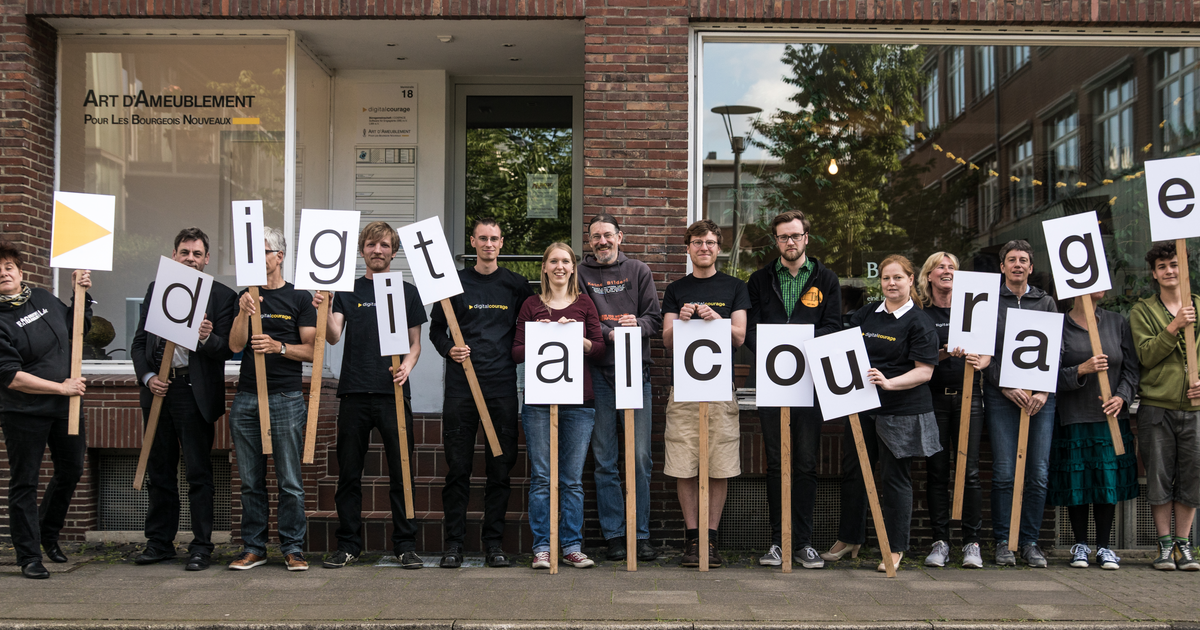#foodgarden #organic #vegan #pricelss #revolution #permaculture #gardening #pixelfed
#revolution
#foodgarden #organic #vegan #pricelss #revolution #permaculture #gardening #pixelfed
Misleader #MurielBowser, #Haiti #revolution, #TedCruz #Somaliland, #crime, #GhislaineMaxwell, #warcrimes #whitesupremacy, new #coup in #Bolivia, #Washington #DC takeover, attack on #Venezuela, #FrantzFanon & #BlackAugust, #Alaska summit, US #humanrights v. #China & Venezuela.
Art prompt: The "Nebraska" xkcd cartoon, but the upper part is labelled "Broligarchy relying on open / free software." and there's a person with a crocket club labelled "The Revolution" standing next to it taking a swing. #fascism #revolution
The only way forward to a free, democratic world is the path where capitalism no longer exists, and private property, money, and class distinctions are abolished.
"Workers of the world, unite!"
#communist #communism #marxism #marxist #capitalism #anticapitalism #world #democracy #freedom #revolution #socialist #socialism
3/
RULE 18
Repeat “Rinse and Repeat”
RULE 19
There’s No Such Thing as a Single-Issue Revolution
RULE 20
Get Ready for the Counterrevolution (to Include Your Friends)
RULE 21
Put Consumer Software at the Center
RULE 22
People New to Politics Make the Best Revolutionaries
This Is How We Win
• becky & zack •
2/
RULE 10
Give Away Your Passwords
RULE 11
Don’t Let the Perfect Be the Enemy of the Big
RULE 12
Learn the Basics of Good Management
RULE 13
If There Are No Nurses, I Don’t Want to Be Part of Your Revolution
RULE 14
Grow Complexity by Solving Problems as They Arise
RULE 15
Only Hire Staff Who Embrace the Rule “The Revolution Will Not Be Staffed”
RULE 16
Best Practices Become Worst Practices
RULE 17
The Revolution Is Not Just Bottom Up; It’s Peer to Peer
Rules for revolutionaires
RULE 1
You Won’t Get a Revolution If You Don’t Ask for One
RULE 2
The Revolution Will Not Be Handed to You on a Silver Platter
RULE 3
The Revolution Will Not Be Staffed
RULE 4
Fighting Racism Must Be at the Core of the Message to Everyone
RULE 5
Get on the Phone!
RULE 6
The Work Is Distributed. The Plan Is Centralized.
RULE 7
The Revolution Will Be Funded—by Small Donations
RULE 8
Barnstorm!
RULE 9
Fight the Tyranny of the Annoying
1/
Review of "The Revolution to Come: A History of an Idea from Thucydides to Lenin" by Dan Edelstein (Princeton UP, 2025)
This was an interesting, accessible, if fundamentally conservative intellectual history of the idea of revolution. The basic argument is that the meaning and aims of revolution have changed over time. Initially, from the Greeks to the revolution in what became the United States, revolution was something to be avoided and feared. The goal was stability through effective, balanced governance. But with the advent of the idea of progress during the Enlightenment, ever since the French Revolution, revolution was seen as something desirable and necessary.
I read it largely as a critique of the desire for progress and of the left. Many of the critiques are fair, but my concern is that they have been selectively applied. For example, Edelstein locates the emergence of the practice of "political terror" as being intrinsically linked to progress and leftist revolution via events in France. I would argue that all states practice political terror. What was slavery and Indigenous genocide in what became the U.S. if not political terror? What of conservative regimes such as Pinochet's throwing opponents out of helicopters into the ocean? Or that most institutionalized of terror: the Nazi holocaust? Those receive no mention (aside from a claim they do not fit within the scope of study). To condemn Stalin is justified. But to give a pass to Hitler, Franco, Mussolini, et al. because they were not leftists is to miss the bigger picture. What is at issue is not the "pathological" aspect of leftist revolution, but rather the bane that is the nation-state and its exercise of illegitimate power and authority - left or right.
As a study, it is troubling in that it is focused solely on Western thought. There is no consideration of Indigenous forms of governance. Similarly, it is largely a story of powerful white men, with little consideration or contemplation of dynamics such as race or gender or who even gets to decide what government is desirable. Ultimately, what Edelstein wrote without knowing it or acknowledging it is a history of power from above. Unfortunately, those who have always critiqued such power, such as anarchists, are mentioned only in passing, while others are absent entirely.
I am not trying to entirely pan the book, there is much that is of interest, but I also believe that to extract such information one must read it against the grain - ironic, as his reading of revolution is presented as doing just that.
@bookstodon #bookstodon #books #reading #revolution #theory #philosophy #politics
BREAKING: A small, removable trinket might *someday* revolutionize your #gaming experience—if you can stop losing it in the couch cushions.
But don't get too excited, it's only a "big deal" if your idea of excitement is waiting for #vaporware to materialize.
https://arstechnica.com/gadgets/2025/08/tiny-removable-mini-ssd-could-eventually-be-a-big-deal-for-gaming-handhelds/ #revolution #technews #innovation #couchcushions #HackerNews #ngated

In Zeiten der #Krise ist die #Wahrheit die größte #Revolution.
Wer auf Blut watet, kann sich mit Lügen tarnen …
doch niemals die #Verantwortung vor der Geschichte verstecken.
#noPutin ESTP
#noTrump ESTP
@eruwero @OrionKidder @murdoc GNU is the name of the revolution, Linux is an essential weapon in the fight for #freedom .
Today in Labor History August 19, 1953: The U.S. CIA and British MI6 helped Iranian royalist troops overthrow the liberal-leaning Premier Mohammed Mossadegh. As Prime Minister, he introduced reforms such as social security, land reforms and higher taxes including on rental income. He also nationalized the nation’s petroleum industry, which the Anglo-Persian Oil Company (APOC/AIOC), later known as British Petroleum (BP) could not tolerate. As a result, they installed the brutal, pro-Western Shah Mohammed Pahlevi. The brutality of his regime, the torture, secret police, disappearances and mass imprisonment of opponents, set the stage for the Islamic Revolution in 1979, and over 45 years of US aggression against Iran.
@fbartusch too much overhead already. How about overthrowing the academic hierarchy altogether? #revolution
The Bolshevik Revolution occurred on 7 November 1917 (old calendar 25 October) and established a new republic: Soviet Russia. #History #Bolshevism #NovemberRevolution #OctoberRevolution #Revolution #Russia #RussianRevolution #Socialism #VladimirLenin #HistoryFact https://whe.to/ci/1-24625-en/

Die ersten Inselstaaten stehen vor dem physischen Untergang, die Folgen der Klimakatastrophe sind an allen möglichen Orten zu spüren - und die Politik macht: fast nichts. Es gibt eine Klimakonferenz nach der anderen und das ohne spürbare Veränderungen. Warum eigentlich? Warum wird international gemeinsam ein Ziel festgelegt, was kaum ein Staat einhält? Können die Staaten nicht mehr machen oder wollen sie nicht?
In der Veranstaltung soll einerseits die Rolle diskutiert werden, die die Natur als kostenlose Ressource in einer Gesellschaft spielt, in der sich ökonomisch alles ums Geld dreht. Zweitens wird es um das Verhältnis von Politik und Ökonomie im Bezug auf die Klimakatastrophe gehen. Dabei werden wir einen besonderen Blick auf die Energie werfen, da dieser sowohl für die kapitalistische Produktionsweise als auch für die Klimakatastrophe eine besondere Bedeutung zukommt.
Aufgezeigt werden soll damit, dass sich die Klimabewegung mit ihren Klimastreiks nicht an den Staat wenden sollte. Denn der Staat ist kein guter Ansprechpartner, um die Klimakatastrophe aufzuhalten.
Es ist kein Vorwissen notwendig.
Klimapolitik im Kapitalismus
Der Vortrag ist von der Gruppe Widerspruch: https://widerspruch.noblogs.org/
Frankfurt, Wednesday, August 20, 11:00 AM Tent/Zelt 13 https://www.system-change-camp.org
// english:
The first island nations are on the brink of physical extinction, and the consequences of the climate crisis are becoming visible across the globe. Yet, political action remains totally inadequate. Climate summit follows climate summit, but tangible change is nowhere in sight. Why is that? Why do countries agree to international climate targets only to fall short of meeting them? Is it a matter of inability—or unwillingness? This event will explore two central themes. First, it will examine the role of nature as a free resource in a society with an economy centered around money. Second, it will investigate the relationship between politics and economy in the context of the climate crisis, with a particular focus on energy— which plays a crucial role for both the capitalist mode of production and for the climate crisis. We want to argue that the climate movement should not address their actions and climate strikes to the state, since the state is not an ally in the fight against the climate crisis.
No prior knowledge required.
#India Is Leading A #Nuclear #Revolution : Medium
#Startup enables 100-year #Bridges with #Corrosion-resistant #Steel : MIT
The #Amazon #Rainforest Approaches a Point of No Return : Yale
Check our latest #KnowledgeLinks
Adjani s'est confiée au Monde pour une série d'entretiens, elle se dit "soulagée" en ce moment avec le "'metoo" ambiant. "Ouf", confie-t-elle. Truffaut lui glissait des lettres sous sa porte, elle avait 20 ans à peine, Kontchalovski lui a sucé les doigts lors de leur première rencontre, et Godard a baissé son pantalon devant elle alors qu'elle était en plein deuil paternel. Les sales types. https://www.lemonde.fr/series-d-ete/article/2025/08/18/francois-truffaut-obsede-par-isabelle-adjani_6631656_3451060.html

#HasanPiker isn't even doing much to build the American #labor movement. I appreciate him pushing people to join their #Unions or #Unionize their #workplace.
But without dropping the #Dems. What is the point then?! How will #America have a #revolution without #workingclass power & Independent Politics?
dangers of 𝗽𝗼𝗹𝗶𝘁𝗶𝗰𝗮𝗹, 𝗿𝗲𝘃𝗼𝗹𝘂𝘁𝗶𝗼𝗻𝗮𝗿𝘆, 𝗹𝗲𝗮𝗱𝗲𝗿𝗹𝗲𝘀𝘀 𝗼𝗿𝗴𝗮𝗻𝗶𝘇𝗮𝘁𝗶𝗼𝗻𝘀 #after #a #revolution
█
central planning of life – work, housing, farms, factories managed from assemblies/councils
new bureaucracy – officials, delegates, and coordinators become a substitute state
suppression of autonomy – individuals and communities lose the right to self-organize
uniformity imposed – one anarchist-communist program fits all
loss of spontaneity – daily life becomes regimented by procedures
permanent institutions – temporary revolutionary bodies harden into fixed authorities
emergence of new elites – organizers, theorists, or veterans become the ruling class
mandatory participation – assemblies, labor, or communal living cease to be voluntary
paternalism – people treated as if they need guidance “for their own good”
ideological policing – dissent cast as “counter-revolutionary”
alienation returns – people feel managed from above, even without a state
cycle of authority – anarchist officials become indistinguishable from state officials
erosion of trust – disillusion when freedom turns into bureaucracy again
collapse of diversity – alternative ways of living get pushed out
inefficiency and slowness – assemblies fail to handle the complexity of life
concentration of resources – food, housing, work allocation = new power
violence against autonomy – groups or villages forced into federations or communes
domestication of revolution – energy redirected to managing life, not liberating it
institutional inertia – revolutionary structures refuse to dissolve
death of freedom – a new cage arises in the name of liberation
The Future of Revolution w/ Jasper Bernes (part 1)


